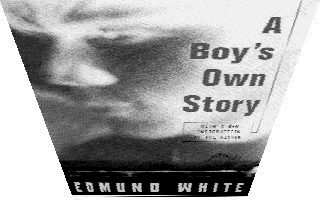The Lament of Edmund White

The Lament of Edmund White

The last of Edmund White's Trilogy, The Farewell Symphony is probably one of the most poignant gay novels I've read. Whereas the autobiographical On Borrowed Time by Paul Monette has rendered me anxious and fearful, The Farewell Symphony has rendered me sad and lonely. This latest of Edmund White's books is derived from The Farewell Symphony by Haydn where "In the last movement more and more of the musicians get up to leave the stage, blowing out their candles as they go. In the end just one violinist is still playing." This novel is a story of people - wonderful, colorful, intelligent and delightful characters - literary figures that, had they lived until today, could have gifted us with extraordinary literature - faces and bodies of beauty and lust - servants and masters of life and sex - who bowed one by one as they succumbed to AIDS. They also include a cold father, a mother longing for praise, a sister turning into a lesbian, a nephew getting destroyed by his love to an American-Mexican girl. I read the book with so much gusto, as it narrated the escapades and adventures of the young, aspiring novelist - whose only goal in life is to get published - despite completing four unpublished manuscripts - which no one wanted. But Edmund goes further than his literary endeavors in this book. He shares with the reader his acquaintances and friends and sex partners and what they did - with so much honesty and intimacy that I can feel him sitting beside me whispering all his secrets....Oh, the sex of New York in the 70's!! It made me cringe.... Not that I'm prudish, or holier-than-all, or something, but by golly, antibiotics during Edmund's New York '70's were thought of as menu for anticipated STD's. An image that really floored me was this: A patient went to a MD for his penicillin shot after contracting syphyllis or gonorrhea. The MD afterwards bent over to be f---ed by this patient. When it was over, the MD administered a penicillin shot to himself.
I am mentioning this particular scene in this review because it's one of the passages I cannot forget. It lingers in my mind maybe because I work in the health field. Not that I am offering another reason for the Christian Right to condemn homosexuality - and I want to clear this up - the decade Edmund White is talking about is associated with sexual revolution, a period when heterosexual hippies themselves experimented with sex. It was also the period when gays won their rights and freedom after Stonewall. After so much suppression, they suddenly exploded.
Edmund White is one of the remaining survivors of that revolution, (he himself is now HIV+) who is offering us a glimpse of what happened.
And for that, I consider him very very kind. History will someday judge AIDS epidemic and its evolution from a scientific point of view. In future history textbooks, AIDS will be written in the same context as Black Death or Leprosy or Tuberculosis. It won't fall under the emotional or religious hype we now experience and witness. Future historians will discard the fear and helplessness we now feel as they write about AIDS.
But our children and their children will still pick up Edmund White's The Farewell Symphony to understand how we, as humanity, react to mutations of diseases. And see how much bravery and courage and acceptance we are capable of.
That's what The Farewell Symphony is all about - it offers us grief and loneliness yet ends with the calm and dignified assurance that life will still go on.
Here is the story of a gay man who lives his life to the fullest. Who takes what is offered him, who rides upon the waves of his time. He neither offers guilt nor apologies nor prayers. He simply says, at least to me, "Here is life for you, take it or leave it."
Passages from Farewell Symphony:
"I was writing a short novel, as punchy as I could make it, about the 1960's, ending with Stonewall Uprising in 1969 and the beginning of gay liberation. I thought that never had a group been placed on such a rapid cycle - oppressed in the fifties, freed in the sixties, exalted in the seventies and wiped out in the eighties."
"Now, the sadness and isolation I felt - as an expatriate, as the survivor of a dead generation, as someone middle-aged in a gay youth oriented culture - made me turn to other gay men, young and old, as my readers. I wanted to belong to a movement that I scarcely understood, for Larry Kramer had called for anger and activism, but I had nothing to offer but grief and helplessness."
On Gay Writing:
"Gay men of my generation, especially those who'd shared my experiences, were dead or dying. The younger ones, with their shaved skulls, pierced noses, tattoes and combat boots, appeared to belong to another race, militant, even military, too brusque and strident to be receptive to my elegies. Whereas pioneer gay novels - Gore Vidal's The City and the Pillar, James Baldwin's Another Country, John Rechy's City of Night - had attracted curious heterosexual readers, now gay fiction was a commodity assigned its two shelves in a few stores, and no heterosexual would venture to browse there, just as no man would leaf through a book shelved under "Feminism." The heterosexual browser or the curious male might have even felt he was trespassing. The category of general literary fiction was vanishing, and its disappearance showed that the new multiculturalism was less a general conversation than rival monologues."
Mr. Edmund White has a lot more things to say than this...a lot more
things to say...
home